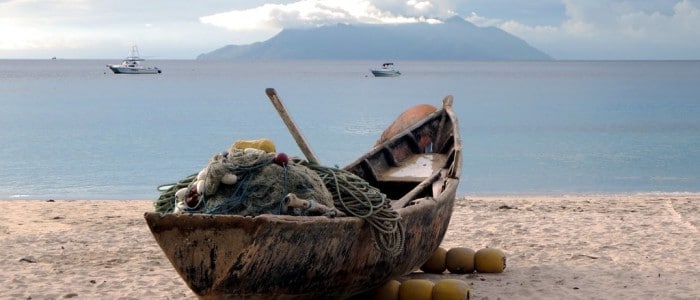Published
Migration Seen From Brussels
By: Roderick Abbott
Subjects: European Union WTO and Globalisation

Much talk and attention in recent weeks to the streams of migrants heading across the Mediterranean to Italy and Malta, and to the large numbers of them that have drowned (over 1800 this year).
Seen from Brussels, and even more from Italy, humanitarian concerns are dominant and require urgent action – drowning people have to be rescued. Seen from the UK (at least the media and some politicians) events far away to the south get less attention and reports and pictures switch rapidly to Calais! – where other migrants are hoping to enter the UK.
These thoughts have been prompted by reactions to the Commission’s ideas to establish quotas so that those who are claiming refugee and/or asylum status can be spread across the EU during the period while their applications are being processed. This would be the alternative to being concentrated in camps at the points of entry in Italy (and in Greece) or taken in in other countries – overwhelmingly in Germany and Sweden. This is a clear case of spreading the burden more fairly among the EU members to deal with what is obviously an EU-wide problem; and yet this simple message is not always understood and still less appreciated – so it seems.
France, Spain and the countries of central and eastern Europe have been bitterly critical of the quota plans. In April interior ministers from the 28 countries agreed that any sharing of refugees should be voluntary, but the commission plans would make the redistribution mandatory. Germany, Sweden, and Austria, which together take in the lion’s share of refugees in Europe along with Italy and Greece, are in favour of the plan. According to EU figures, 220,000 irregular migrants reached Italy and Greece last year, and the numbers have surpassed that this year. (The Guardian 27 May)
Even before the plans were presented to the public, there was fierce opposition to the proposals. British Home Secretary Theresa May said beforehand that the UK would not under any circumstances participate in a quota system for distributing refugees. Last weekend, French President François Hollande said, “It’s out of the question to have immigrant quotas because we have rules on border checks and policies for overseeing immigration.” He was repeating statements made by the Hungarian Prime Minister Viktor Orban, who rejected the planned quota system with openly xenophobic arguments, calling it a “proposal bordering on madness. (World Socialist website wsws.org)
There is widespread confusion or ignorance about the difference between relocation – a temporary solution while migrants are processed – and resettlement, which carries a more permanent status in the host country willing to receive them. In the latest reports it is now evident that the Commission is proposing two different types of quota to address these different situations, and that the whole system aims at fairer burden sharing – an advanced form of co-operation among EU members. The Treaties provide for mutual assistance of this kind. At the same time there are opt-outs and some elements are voluntary.
Calculating the precise numbers and shares can always be discussed in specific cases and particular circumstances: proposals are made for consultation to take place. But it is alarming to find a number of member states rejecting such an approach out of hand. Domestic politics is of course a powerful factor; but that should not be used to dismiss valid humanitarian concerns and to leave the major share of the EU response to a few countries which have a more liberal approach on these matters. Germany, Sweden, Italy and France, and Hungary are the leading countries that accept asylum seekers temporarily; among the larger states the UK and Spain are notably absent (the UK accepts half as many as France and Spain even less). Both Sweden and Hungary are countries with smaller populations – under 10 million citizens – so taking in temporary migrants has a larger impact. For them to be among the leaders does not seem to me to be equitable burden-sharing. [1]
Memo to Cameron: it is hardly the way to make friends and influence people to rubbish a fairer method of distributing migrants across the EU and to relieve the burden on Germany and Sweden – who would normally want to be helpful to UK concerns.
[1] On the figures I have (for 2014) 203,000 asylum seekers applied to enter Germany and 81,000 applied to enter Sweden; while Italy and France both had around 65,000 cases and Hungary 43,000. It is important to remember that these are figures for applicants, not numbers or people permitted entry. The more definitive outcomes, after positive decisions are taken, would reduce the German and Swedish figures to 48.000 and 33,000 respectively. 90% of all asylum seekers in 2014 were accommodated in the top nine countries (five above plus UK, Austria, Netherlands and Belgium).